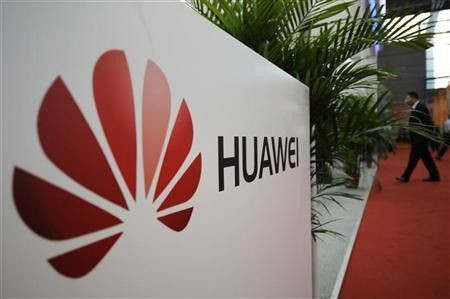Australia Blocks China's Huawei from Broadband Tender

(Reuters) - Australia has blocked China's Huawei Technologies Co Ltd HWT.UL from tendering for contracts in the country's $38 billion National Broadband Network (NBN) due to cyber security concerns, Huawei said on Monday.
We were informed by the government that there is no role for Huawei in Australia's NBN, said Jeremy Mitchell, a spokesman in Australia for Huawei, the world's No. 2 telecommunications equipment maker.
NBN is a huge project that aims to connect 93 percent of Australian homes and workplaces with optical fibre, providing broadband services in urban and regional areas. It was created in 2009 by the Australian government with committed investment of up to $38 billion and is expected to be ready by 2020.
The Australian Financial Review said in a report earlier on Monday that Huawei was seeking to secure a supply contract worth up to A$1 billion ($1.04 billion) with NBN, but has been blocked by the Attorney-General's department based on advice from Australian Security Intelligence Organization (ASIO).
When asked to comment on the report, a spokesman for Attorney-General Nicola Roxon said in a statement: This is consistent with the government's practice for ensuring the security and resilience of Australia's critical infrastructure more broadly.
The government does not intend to comment on specific discussions with companies, which are confidential, he added.
The ASIO declined to comment on the report.
On the sidelines of a nuclear security summit in South Korea, Prime Minister Julia Gillard told reporters the government had made a prudent decision on NBN contract tenders.
You would expect as a government that we make all of the prudent decisions to make sure that the infrastructure project does what we want it to do, and we've taken one of those decisions, she said.
<^^^^^^^^^^^^^^^^^^^^^^^^^^^^^^^^^^^^^^^^^^^^^^^^^^^^^^^^^^^
Huawei dismisses U.S. calls for Iran probe
Huawei calls on U.S. to investigate
Huawei rejects China aid claim
CISCO sees Huawei as long term competitor
^^^^^^^^^^^^^^^^^^^^^^^^^^^^^^^^^^^^^^^^^^^^^^^^^^^^^^^^^^^>
Huawei was founded by its CEO Ren Zhengfei, a former officer of the People's Liberation Army in China, which has fuelled the claim that it has a cosy relationship with the Chinese government - a claim denied by the company.
The Shenzhen-based firm, like crosstown rival ZTE Corp (000063.SZ) (0763.HK), has been struggling to expand in the United States, which blocked its telecom equipment deals due to national security concerns and allegations it violated sanctions by supplying Iran with censorship equipment.
In 2008, a bid to buy 3Com by Huawei and Bain Capital Partners failed to win approval from a U.S. government security panel.
U.S. congressional suspicions over Huawei's origins also scuttled attempts by the Chinese company to purchase small networking company 3Leaf in 2011, and have barred sales to any U.S. operator.
While we're obviously disappointed by the decision (of Australia), Huawei will continue to be open and transparent and work to find ways of providing assurance around the security of our technology, the Chinese company said in a statement.
We have never been told by the Chinese government to do a certain thing. If we would, that would be to our detriment and we would lose the market share that we have, Mitchell told Australian Broadcasting Corp television.
Huawei started its Australian operations in 2004 and has expanded its business across Australia, New Zealand and the South Pacific.
Australia's former foreign minister Alexander Downer, who is an independent director on the board of Huawei's Australian unit, rejected the government's security concerns.
This sort of whole concept of Huawei being involved in cyber warfare, presumably that would just be based on the fact that the company comes from China. This is just completely absurd, he told ABC radio on Monday.
(A$1=$1.04)
© Copyright Thomson Reuters 2024. All rights reserved.




















